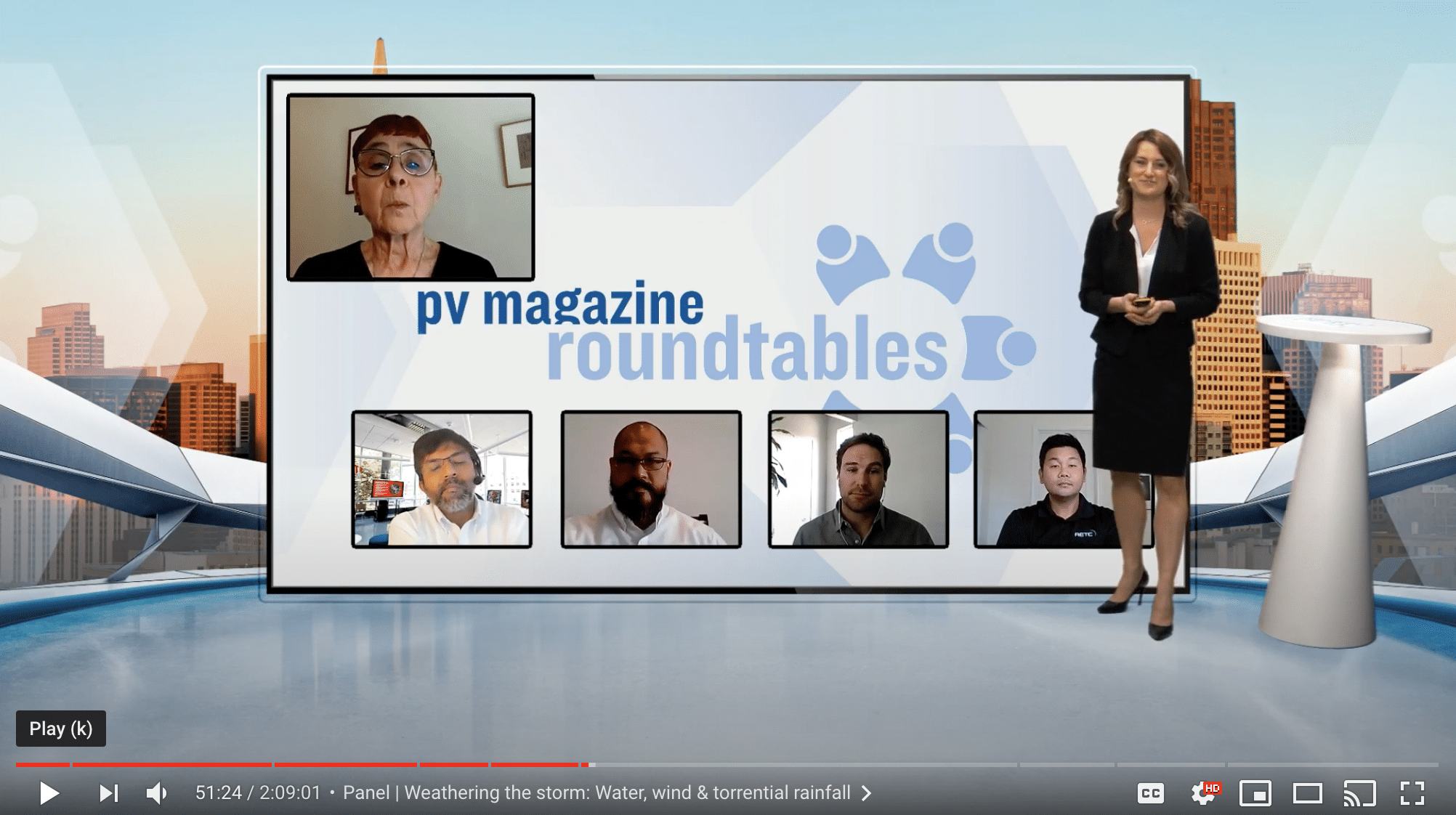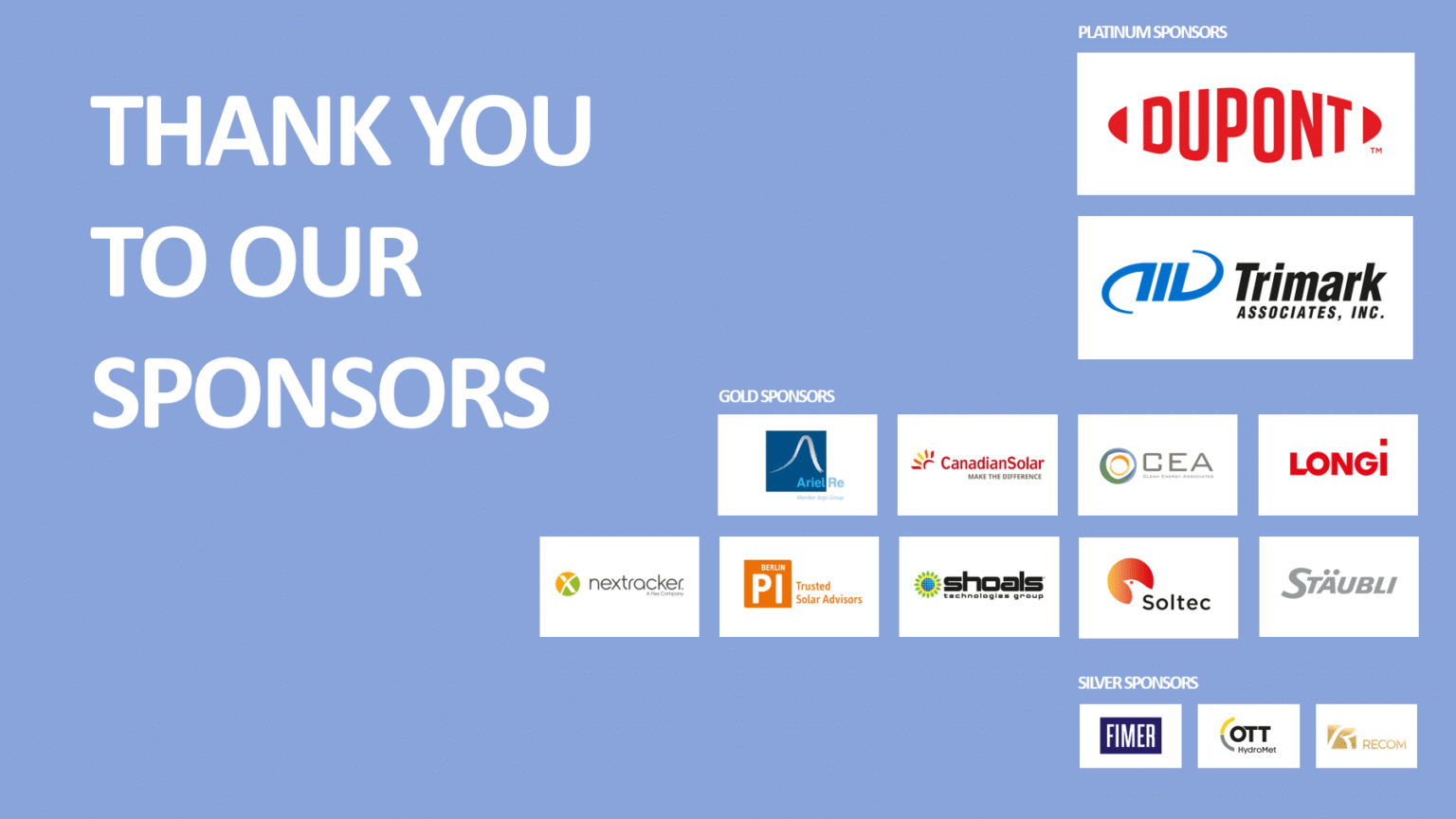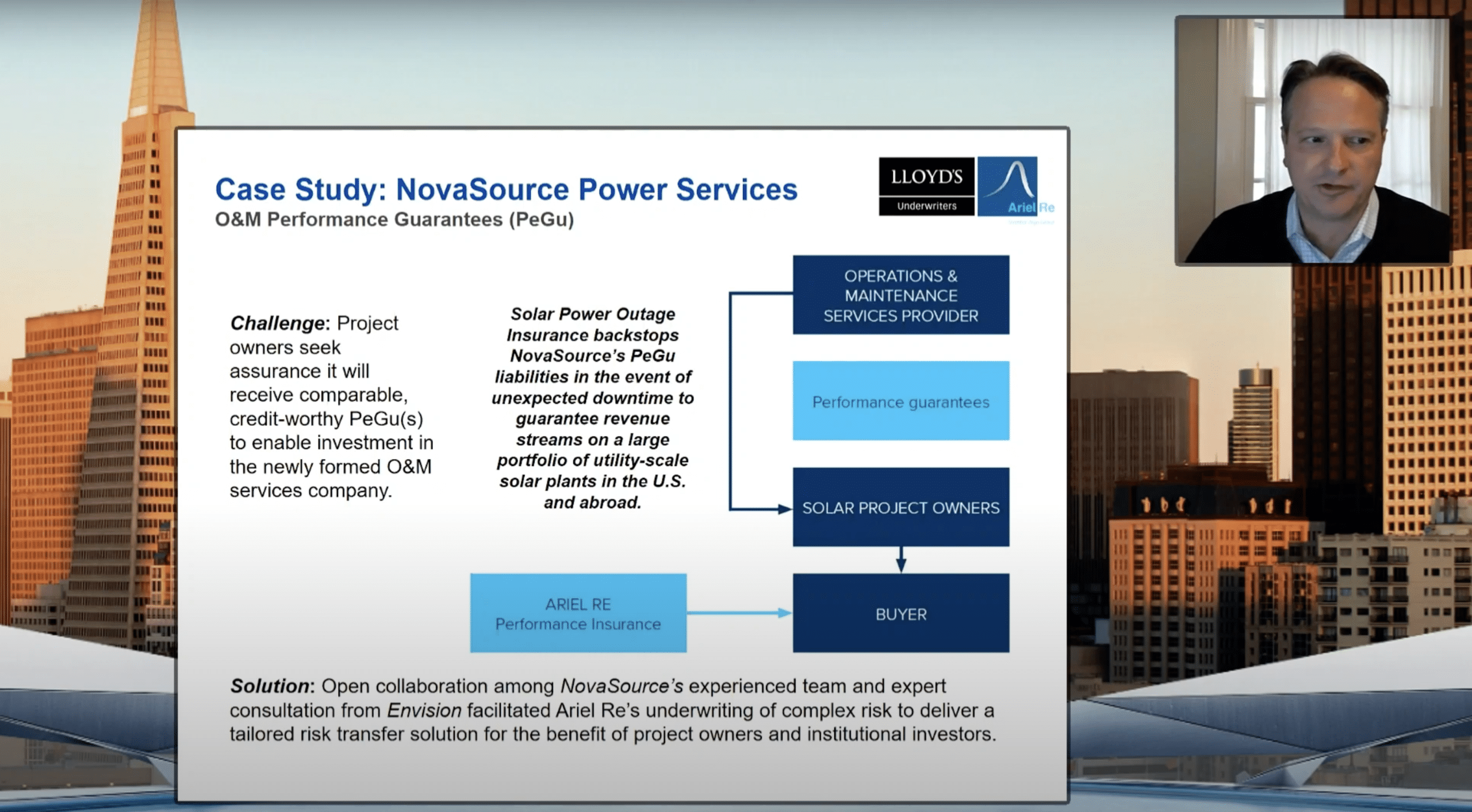On November 17, pv magazine launched its 2020 Roundtable USA event, with leading figures from the U.S. solar PV and energy storage industry coming together in a virtual format to discuss solar PV resiliency in the wake of change.
Watch the pv magazine Quality Roundtable USA
The first part, the Quality Roundtable, looked at how critical it is for companies to focus on quality as an effective tool for not only bringing down the levelized cost of electricity (LCOE) and optimizing PV plant performance, but also for ensuring reliability over the full lifetime of a PV system against the backdrop of a changing climate with increased natural disasters, and for keeping insurance costs down.
Session 1: In the face of extreme weather – Water, wind and fires
Since 1980, damages from weather and climate disasters in the U.S. have exceeded US$1.825 trillion, according to the National Oceanic and Atmospheric Association (NOAA). From 1980 to 2019, the annual average count of extreme climate and weather events, which caused damages of more than $1 billion, was 6.6. When looking at the annual average from 2015-2019, this jumps to an average of 13.8 – twice the number of such events.
This year, extreme weather has hit the U.S. particularly hard. Through October 2020, there have been 16 weather/climate disaster events with losses exceeding $1 billion each, calculated NOAA. These included 11 severe storms, three tropical cyclones, one drought, and one wildfire.
Looking at these numbers, it is important to note what we don’t see: There have been numerous other storms and wildfires in the U.S. this year affecting solar PV assets.

All about PV quality
Building PV for resiliency – before and after an extreme weather event – is all about quality. We can’t control the weather, but we can control quality, sound engineering and deployment of the right O&M strategies. Renewable energy insurance provider GCube said in 2018 that 50% of North American insurance claims in the PV industry come from weather events. Reason enough to give this topic some greater attention.
To discuss these key issues, Kaushik Roy Choudhury, Global Technical Leader, DuPont Photovoltaic Solutions, Jeff Wang, Business Development Alternative Energies – North America, Stäubli Electrical Connectors, independent expert, Daniel Chang, VP of Business Development, from PV testing lab RETC, and Alex Roedel, Senior Director of Design and Engineering, Nextracker took to the virtual stage to host a panel discussion (see video: minute 51).
Watch the pv magazine Quality Roundtable USA
RETC’s Chang stated that the U.S. solar industry is in a “perfect storm” of increased demand for higher efficiency PV panels, lower costs and PV installations built in hail prone regions, like Texas. “Insurance companies want to qualify and quantify the issues that they’re seeing, before they insure,” he said. This means testing is crucial.
Agreeing, DuPont’s Choudhury added that with fast changing technologies, like bigger, lighter modules, and pressures to decrease costs, both testing and the reliability of materials are key for solar installers.
Adding to their sentiments, Nextracker’s Roedel said that while discussions have thus far focused on why extreme weather events are a big issue, it is now time to figure out what the solutions are for lowering both solar risk and insurance rates.
Session 2: Building resiliency through modern O&M
Operations and maintenance (O&M) is now a much more critical piece of the solar landscape – and the key to long-term resilience and a competitive LCOE. As grid-scale solar becomes a more mature, sophisticated business, so is the modernization of the O&M segment, where we are seeing more alliances to support the long-term ownership for PV assets. Increasingly, the O&M role in the U.S. is being contracted out to a third party – a trend typical of a maturing power industry.
To discuss these issues, George Schulz, Vice President of Clean Energy at Ariel Re provided a review of risk management insurance solutions in the second session, to enhance the certainty of long-term project cash flows through Performance Ratio/MWh guarantees available to stakeholders of utility scale projects, C&I and residential portfolios, as well as the O&M services that provide comprehensive performance guarantees to customers (hour 1.39).
Sarah Herman, Director of Engineering and Remote Operations, NovaSource went on to present case studies to shed light on some of the events a solar O&M provider must be well-equipped to handle to minimize project downtime, maximize performance, and stabilize the assets (hour 1.49).
Watch the pv magazine Quality Roundtable USA
Presentations and case studies
In addition to the two sessions, DuPont’s Kaushik Roy Choudhury held a presentation on Field performance of modules in the wake of changing technologies and weather, where he looked at recent issues from the field; and balancing technology and reliability to reduce premature degradation and field failures (minute 24).
pv magazine’s K Kaufman went on to present a case study, Hail happens, from a 2019 North Carolina extreme hail event and the resulting implications (minute 42).
Finally, Tara Doyle from PV Evolution Labs held a presentation on Field data from California wildfires, which provided a review of fire the latest fire season’s damage reports and an approach to evaluating sites and most affected areas. Insights into O&M and handling insurance claims (hour 1.31).
Those who registered for the event can download the presentations in the networking area of the event app -> to the event app.

This content is protected by copyright and may not be reused. If you want to cooperate with us and would like to reuse some of our content, please contact: editors@pv-magazine.com.









By submitting this form you agree to pv magazine using your data for the purposes of publishing your comment.
Your personal data will only be disclosed or otherwise transmitted to third parties for the purposes of spam filtering or if this is necessary for technical maintenance of the website. Any other transfer to third parties will not take place unless this is justified on the basis of applicable data protection regulations or if pv magazine is legally obliged to do so.
You may revoke this consent at any time with effect for the future, in which case your personal data will be deleted immediately. Otherwise, your data will be deleted if pv magazine has processed your request or the purpose of data storage is fulfilled.
Further information on data privacy can be found in our Data Protection Policy.